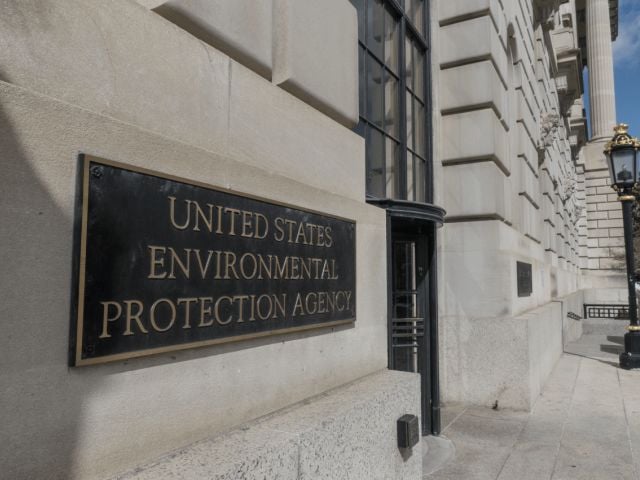
The farm bill passed by Congress takes food and farm policy in the wrong direction. It lacks the conservation funding needed to protect the nation’s natural resources and makes damaging cuts to the Supplemental Nutrition Assistance Program (SNAP).
These cuts helped Congress free up additional funding for federally subsidized crop insurance. Apparently the program’s price tag of more than $14 billion in 2012 wasn’t high enough. The new farm bill creates new, expanded and largely unlimited crop insurance subsidies that will flow predominantly to the largest and most successful farms.
At a time of record farm income and a growing national deficit, there was no need to expand the crop insurance program – a blatant example of corporate welfare – especially at the expense of family farms, the environment and America’s hungriest citizens.
Here’s what others have to say about the bill:
Today, the Senate passed a trillion dollar farm bill that increases special interest subsidies for one of the most profitable sectors of our economy while turning a blind eye to our country’s more than $17 trillion national debt. The Agricultural Act of 2014 expands the government’s role in agriculture, picks winners and losers, hides the names of lawmakers and Cabinet Secretaries receiving taxpayer subsidies and guts provisions to rein in subsidies to city dwellers and other non-farmers.
National Sustainable Agriculture Coalition:
The bill jettisons the long-overdue payment limitation reforms included in both the House- and Senate-passed bills last year that target farm subsidy payments to working farmers. It also drops a provision passed twice by the Senate that would have modestly reduced insurance subsidies to millionaires. Additionally, the bill cuts billions from the very conservation programs that help farmers address production challenges and protect natural resources and the environment. The final bill also reduces benefits for a portion of SNAP (food stamp) participants.
“At a time of fiscal restraint, growing income inequality, and economic distress in rural communities, it is appalling for the new farm bill to continue uncapped, unlimited commodity and crop insurance subsidies for mega-farms,” said Ferd Hoefner, Policy Director with NSAC. “The backroom deal to reverse the reforms backed by a bipartisan majority of the both the House and the Senate is an affront to the democratic process.”
While Congress and the White House reached consensus that the time has come to finally end the awful “direct payments” program, Congress squandered most of those savings through the creation of a variety of new “shallow loss” insurance programs that look to lock in record-high commodity prices. The White House also proposed scaling back premium subsidies for crop insurance as well as administrative and operating expense subsidies to crop insurance companies, while the bill passed by Congress actually expands the crop insurance subsidies, a program with no limits or caps whatsoever to hold down costs.
“Given that shallow loss places trillions of dollars of market price fluctuation risk on the backs of taxpayers, we would not be surprised to find that this bill actually proves to be more expensive than a straight extension of existing law,” [R Street Senior Fellow Andrew] Moylan said. “We call on the president to use his pen to veto this measure and insist that Congress return a bill that at least meets his own modest budget savings demands.”
New York City Coalition Against Hunger:
I am devastated, but unfortunately not surprised, by the Senate’s passage of a Farm Bill cutting SNAP by nearly $9 billion, on top of $11 billion in cuts that took place last November 1st. Our political system is so broken it has morphed into spineless versus heartless, and low-income Americans are, once again, those who will suffer most. Every member of Congress who voted for this legislation should be embarrassed. It’s an orgy of corporate welfare and subsidies for the wealthy paid for by cuts to programs that help the needy put food on the table. It is Robin Hood in reverse. – Executive Director Joel Berg
Though less than the $40 billion cuts to SNAP proposed in 2013, the $8.6 billion cut included in the bill will have drastic implications for hundreds of thousands of SNAP households. While the bill will not kick current beneficiaries off the program, it will cut benefits for approximately 850,000 households.
“Congress must not forget that many American families are still struggling to put food on the table – especially at a time when unemployment remains high and programs that support hungry and poor people are at risk of greater cuts,” [Bread for the World President Rev. David] Beckmann added. “Any cut to SNAP is harmful.”
Feeding America strongly opposes the $8.6 billion cut to SNAP (the Supplemental Nutrition Assistance Program) included in the legislation. The bill will result in about 850,000 low-income households losing an average of $90 in monthly benefits. This reduction in benefits follows an approximately $11 billion cut to SNAP benefits that took place on November 1 of last year.
These cuts will be concentrated in 15 states and the District of Columbia and will equate to about 34 lost meals per month for each affected household – a total of 3.2 billion lost meals over 10 years, according to estimates by Feeding America. – CEO Bob Aiken
Food Research and Action Center:
FRAC has opposed the SNAP cuts because they will harm too many of the most vulnerable members of our society, making monthly food allotments fall even further short of what is needed for seniors, people with disabilities, children, low-income workers and unemployed people. We appreciate the efforts of the many members of the House and Senate, the many national, state and local groups, and the many editorial writers and social media outlets that have opposed these cuts and spoken to the importance of defending already-inadequate SNAP benefits against these and other cuts.
SNAP is essential to the nutrition, health and wellbeing of 47 million Americans each month. Just a year ago, an Institute of Medicine committee found that SNAP benefits are already inadequate for most families to purchase a healthy diet throughout the month. IOM acknowledged flaws in how benefits are calculated and outlined possible strategies to remedy the problem. At the same time, a spate of studies over the last year has shown how important adequate monthly benefits are to health and wellbeing, and how inadequate benefits drive up hospital admissions and various other costs.
The bill’s authors urge support because it eliminates egregious “direct payment” subsidies and makes a few other incremental reforms. But for every step the bill takes toward better federal agriculture policy, it takes two or three steps in the other direction. Worst of all, it creates two new programs – Agriculture Risk Coverage and a Supplemental Coverage Option – which, taken together, all but guarantee beneficiaries’ revenues never fall below 86 percent of their earnings during years of high crop prices, according to estimates by Montana agricultural economist Vincent H. Smith. This federal largess is subject to no significant means testing. In fact, people making up to $900,000 in adjusted gross annual income can qualify for payments. Why would a president concerned about inequality endorse such welfare for the prosperous?
Contrary to what its apologists claim, the 2014 farm bill is not a hard-won triumph for bipartisanship. Instead, it is a case study in everything that’s wrong with Congress. This is a bill of, by and for the agriculture lobby, which, through sheer power and self-interested persistence, ground down reform advocates over three years. The premise of the legislation – that this country would be at risk of shortages and soaring food prices without multiple layers of central planning in agriculture – is simply not true.
Looking closer at farm programs, this conference report cements the corporate welfare policies that have defined U.S. farm programs for far too long. It doesn’t eliminate the redundant catfish inspection program, for instance. Although it does reportedly eliminate the widely criticized direct payment program, it expands a number of other corporate welfare programs such as crop insurance premium subsidies and revenue guarantees. In addition, although the dairy’s supply management program that House Speaker Boehner criticizes is excluded, the conference report includes premium reductions to help dairy farms, essentially cancelling the benefit. - Federal Affairs Manager Christine Harbin Hanson
New York Times columnist Mark Bittman:
O.K., it’s a compromise. But it’s a corrupt compromise when you consider that subsidies to wealthy farmers should actually be eliminated or at the very least capped, and they’re most certainly not. (And the new crop insurance that’s taking the place of direct payments is itself heavily subsidized; a true compromise would at least reduce those subsidies enough to compensate for unnecessary food stamp cuts.) And it’s an unfair compromise because food stamp funding should actually be increased: there have never been more people in need of it, and many eligible people don’t actually receive food stamps because outreach programs are no longer funded. And it’s a stupid compromise because it decreases conservation funding … why, exactly? Because we’ve succeeded so well at conservation that we don’t need it any more?
In fact, the bill achieves its small savings at the expense of poor people and the environment, while – and I’d bet on this – it will in the long run achieve no savings in payments to farmers who hardly need them, who can receive payments as long as their income is under $900,000. That’s adjusted gross income, by the way.
There's nothing wrong with insurance per se, and the dairy approach appears to be a real improvement over the current policy. Where the corporate welfare comes in is with the premium subsidies, which in the case of the crop insurance programs are available to any farmer with an adjusted gross income of less than $900,000. The limit per farmer is $125,000, or $250,000 if you include a spouse. And there is, as yet, no effective mechanism to stop people who aren't active farmers themselves – e.g., people who merely rent out their land – from collecting subsidies.
On average, taxpayers have covered 62% of the cost of the insurance premiums.
There's also the issue of how the programs are designed. Should crop prices fall from their current, elevated levels, one of the new insurance plans could wind up costing more than the direct payments program that's slated for elimination, some critics say.
Albany (Georgia) Herald columnist Cynthia Tucker:
Take crop insurance, which has its roots in the Dust Bowl era. Though conditions have changed substantially since then – the small family farmer has virtually disappeared – crop insurance has mushroomed. In 2012, according to The Insurance Journal, taxpayers spent $14 billion insuring farmers against a loss of income. Is there any other business in America that gets that sort of benefit? Aren’t farmers supposed to be entrepreneurs willing to take risks?
This farm welfare comes at a time when agricultural income is soaring. Last year, farm income was expected to top $120 billion, its highest mark, adjusted for inflation, since 1973, the Insurance Journal said. Lots of millionaires and billionaires are on the list of those receiving the assistance.
One case of mind-boggling hypocrisy is that of U.S. Rep. Stephen Fincher, a Republican and a farmer from Frog Jump, Tenn., who collected nearly $3.5 million in subsidies from 1999 to 2012, according to the Environmental Working Group. In 2012, he received $70,000 in direct payments alone – again, money paid to farmers whether they plant or not. (Can anyone say “moochers” and “takers”?)
New Republic article by David Dayen:
But don’t be fooled: The politicians patting themselves on the back for repealing subsidies to farmers have found a surreptitious way to deposit these savings right back in the pocket of agribusiness. That’s because the farm bill will expand subsidies for crop insurance, which looks like a private-sector program but which actually hands over virtually the same amount of taxpayer money to farmers, mostly wealthy ones, as the old direct payment program. What’s more, the shift from direct payments to crop insurance ensures that those handouts can be distributed in a hidden, more politically palatable way, making it more difficult to ever dislodge them.
Huffington Post blog by John Boyd of NBFA:
Many of us farmers and advocates worked very hard on the farm bill. I wanted to see more reform for federal crop insurance for minority farmers. The larger farmers will receive the most help while small and minority farmers will receive little to no relief under the federal crop insurance program.
I was also pushing for more transparency. If recipients get large payouts from federal crop insurance, then you, the American people, should know who gets how much. Those bills and amendments failed in the House compromise as well.
Globe Gazette (Mason City, Iowa) editorial:
Cutting food stamps now, even in a compromise bill that isn’t as bad as it could have been, would be a travesty.
Keep in mind, “compromise” doesn’t mean cutting everywhere equally. While some farmers lost their direct payments, they got in its place a generous crop insurance incentive that some estimates show will eventually pay them more than they were reaping from the old subsidies.
Big corporate farms win. Small farmers lose. This is the congressional way: The rich get richer and the poor get food yanked from their mouths.


